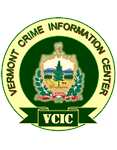If you do not require a notarized or certified letter you can visit the Vermont Criminal Conviction Record Internet Service (VCCRIS)
Introduction
A qualified entity is defined as an individual, business, governmental agency, or organization, whether public, private, for-profit, not-for-profit, or voluntary whose employees, contractors, or volunteers provide care or care placement services for vulnerable populations. Providing care for vulnerable populations means the provision of care, treatment, education, training, instruction, supervision, or recreation to children, the elderly, or individuals with disabilities.
Frequently Asked Questions
Who may request record checks?
Only qualified entities may receive record checks under this provision. A qualified entity is defined as an individual, business, governmental agency, or organization, whether public, private, for-profit, not-for-profit, or voluntary whose employees or volunteers provide care or care placement services for vulnerable populations in Vermont. Providing care for vulnerable populations means the provision of care, treatment, education, training, instruction, supervision, or recreation to children, the elderly, or individuals with disabilities.
For whom may requests for record checks be made?
Criminal conviction searches may be requested on a person who:
- seeks to be employed by or volunteer with a qualified entity;
- is currently employed by or volunteers with a qualified entity;
- seeks to own or operate a qualified entity;
- currently owns or operates a qualified entity;
- seeks to have or may have unsupervised access to a child, the elderly or individual with disabilities to whom the qualified entity provides care, treatment, education, training, instruction, supervision, or recreation;
- currently has or could have unsupervised access to a child, the elderly or individuals with disabilities to whom the qualified entity provides care, treatment, education, training, instruction, supervision, or recreation.
If I decide to do record checks do I need to request them for all prospective employees and volunteers?
If the qualified entity decides to request criminal conviction searches under this program, the employer may request searches on all employees and volunteers or only on those who meet specific criteria established by the qualified entity. If criminal conviction searches will not be requested on all applicants it is recommended that the qualified entity has a written policy which specifies the circumstances under which searches will be requested. The employer should apply the record check policy uniformly to all prospective employees or volunteers.
What kind of information am I likely to receive from VCIC?
Qualified entities will receive information on all criminal convictions from Vermont District Courts. All serious motor vehicle convictions which occurred after September 1, 1995, will be included in the report. By law, arrests that did not end in conviction and pending charges will not be reported. Reports of juvenile convictions will not be reported unless the juvenile was prosecuted in adult court. Criminal conviction information may also be requested from other states. However, requests to other states will involve utilizing the appropriate procedure for the additional state(s) and may be subject applicable fees. Please note that many states also require the applicant to submit fingerprints as part of their record check process.
What if a prospective employee or volunteer has a criminal record?
First, it is important to verify that the report is not in error. Inform the employee or volunteer of the results of the search and discuss any discrepancies between what was reported by the applicant and what is contained in the report from VCIC. The applicant has the right to appeal the results of the conviction search in writing to VCIC. VCIC will make every effort to resolve record appeals within three business days.
It is important to remember that the law does not require a qualified entity to deny an employee or volunteer a position because they have a criminal record. The qualified entity needs to assess the relevancy of the conviction for the type of work that the person will perform. Typically the nature of the conviction, how recently the conviction occurred, the age of the person at the time of the offense, and whether or not there is evidence of a criminal pattern are issues which should be assessed in light of the person’s job duties. It is recommended that each qualified entity have a policy in place which specifies the employer’s policies for the evaluation of criminal conviction information.
If I think I am a qualified entity, how should I proceed?
If you think you are a qualified entity under this provision you should apply in writing to the VCIC to be officially designated as a qualified entity. Application letters should be on letterhead stationery and should explain how you, your business or your agency meets the definition of a qualified entity as specified above. If you are designated as a qualified entity by VCIC you will receive an authorized agency code which you will need to include on each request form in order for VCIC to waive the established $30 fee for conviction searches. Once the authorized agency code has been assigned to you, you will be authorized to request and receive criminal conviction searches.
Once all of my paperwork is in order, how do I request a record check from VCIC?
Once you have received an authorized agency code, you are ready to begin sending requests for criminal conviction searches to VCIC.
Criminal Records Section
Vermont Crime Information Center
45 State Drive
Waterbury, Vermont 05671-1300
(802) 241-5320
Typically it takes five to seven working days to process a criminal conviction search via the mail.
Criminal conviction information cannot be reported over the telephone or faxed.

